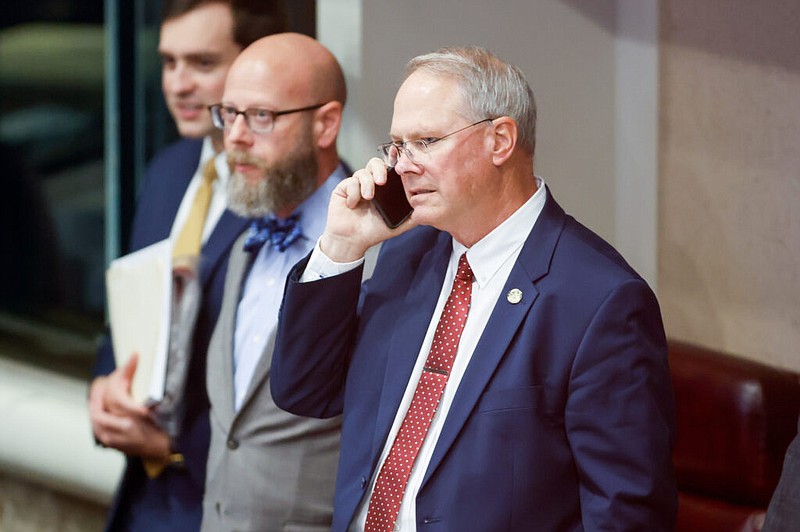A bill that would have banned the teaching of "divisive concepts" failed to pass the Alabama Legislature, and some Democratic lawmakers said it was due to a decision to focus on economic measures that would benefit the whole state.
House Bill 7, sponsored by Rep. Ed Oliver, R-Dadeville, and Senate Bill 247, sponsored by Sen. Will Barfoot, R-Pike Road, would limit the teaching of "divisive concepts" by some public groups, including schools.
Among other definitions, a "divisive concept" included "that fault, blame or bias should be assigned to a race, color, religion, sex, ethnicity or national origin, or to members of a race, color, religion, sex, ethnicity or national origin, solely on the basis of race, color, religion, sex, ethnicity or national origin," per HB7.
(READ MORE: Tennessee Senate approves 'divisive concepts' bill impacting public higher education)
State agencies, local boards of education or a location of higher education would not be allowed to "direct or compel a student, employee or contractor to personally affirm, adopt or adhere to a divisive concept," among other measures.
Barfoot did not return a request for comment. Both bills got committee approval but failed to come out for chamber votes and were indefinitely postponed on the official legislative website May 31.
Oliver said they are "disappointed" the bill did not go further this year.
"That bill as well as many other Republican bills failed at the end of the session for some inexplicable reason," he said.
Democrats suggested Republican leadership was more interested in economic development in the session as opposed to some bills that were more "socially divisive," according to Sen. Merika Coleman, D-Pleasant Grove.
"Some things that would really be helpful to all of the citizens of the state of Alabama," she said. "And the leadership actually worked well together."
Leaders in the chamber "didn't want to just bring something up that's going to blow up the House floor if we knew it," Alabama House Speaker Nathaniel Ledbetter, R-Rainsville, said Tuesday.
Democrats said the bill would have inhibited the teaching of Black history — which Oliver denied — and condemned the legislation in its committee hearings this year. The bill passed the House in 2022, but only after a lengthy debate. It never came to a vote in the Senate.
House Minority Leader Anthony Daniels, D-Huntsville, also said that economic bills seemed to be the chamber's priority this year.
"I think we realize the impact that certain pieces of legislation have on our ability to grow economically, as well as retain business in the state, and we understand how it makes people feel," he said. "I think that we're moving into that posture right now ... if we want our state to grow, we know that image, the way people view us, matters."
A message seeking comment was left with Senate Minority Leader Bobby Singleton, D-Greensboro. Senate Pro Tempore Greg Reed, R-Jasper, was not available for comment Friday.
Coleman, who served in the Alabama House from 2002 to 2022, was elected to the Senate in 2002. She said the bills may have gone further a year ago because it was an election year.
"I think there's some folks that had those bills out there because they were up for re-election," she said. "I mean, that's just the honest truth about it."
(READ MORE: Georgia lawmakers OK parent rights, divisive concepts ban)
Oliver said there are discussions to bring the bill back next year as well as discussions about an anti-diversity, equity and inclusion bill, similar to measures that Florida and Texas have passed.
"It's not enough just to pass a bill, you want to make sure it works and does what you intended it to do," he said. "We hit the ground running the day after the session ended."
Read more at AlabamaReflector.com.
